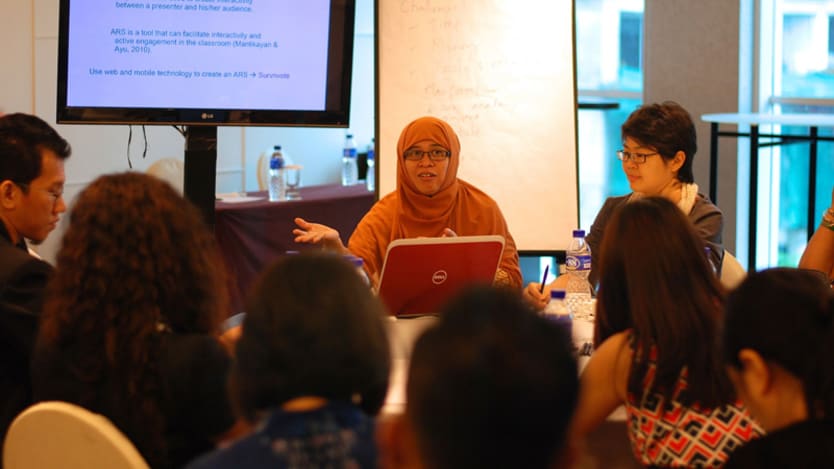
Attacks on civil society are spearheading a wider assault on democracy, voices at this week's World Movement for Democracy have been warning. The “rollback” demands a response, but we need to ensure it’s a nuanced one.
There was sometimes an air of crisis in Seoul, South Korea where the WMD summit was being held. It’s not that concerns about “closing civil society space” are emerging for the first time: I was introduced to the term by CIVICUS a few years ago and recall its descriptions of restrictions on foreign funding of nongovernmental organizations — petty regulatory obstacles, clampdowns for reasons of state security, the establishment of rival state-sponsored “NGOs,” as well as a loss of support for NGOs among donors.
Now, a new threat is emerging. Delegates in Seoul argued that an attempt to build a new anti-democratic conceptual framework is gathering momentum.
This framework interprets good governance as effective management, not democratic accountability. It suggests open economies and a strong private sector do not have to be linked to open societies. It raises “traditional values” to the same status as human rights. It fosters coalitions of authoritarian countries that use persistent blocking tactics to reset the United Nation’s agenda. And it creates norm-setting clubs to challenge the G-7, such as the Shanghai Cooperation Organization, which can be built around authoritarian regimes.
It is bad news for freedom and democracy, many are now suggesting. Some in Seoul believe they are seriously threatened as a result.
The language in Seoul was more dramatic than I had heard before and, rightly or wrongly, I linked this to the strong North American presence there — perhaps the language would have been less stark at a meeting in Brussels or Berlin. But there was also a rhetoric gap between NGOs and academics on the one hand and those with closer ties to governments on the other.
On balance I thought that the NGOs — who were from every continent — had a strong case for upping the rhetorical temperature and I will look more carefully now at how I and others describe what is happening to civil society and to other pillars of democratic societies.
Fighting the rollback is about more than just language, though. Values tend to be broad concepts, but protecting them needs attention to detail — another important lesson from Seoul. What exactly are the democratic norms that are threatened by regulatory restrictions on NGOs? How exactly can traditional values, faiths or beliefs be reconciled with universal human rights? And what impact will an obscure U.N. General Assembly resolution have on the international standards that have been adopted by the U.N. since 1948?
Unless we get this right, it is too easy to paint our reaction as unfounded or culturally insensitive. And sometimes we are wrong. Lawyers are our friends in this work, working with all those that bear witness. This is well-trodden ground for the human rights community, but I think the democracy-strengthening community is struggling with it a bit, for example in looking at “non-Western democracies.”
While there are some extreme cases out there — not least the country 60 kilometers north of where we were meeting — we should be clear that these are not black-and-white issues. Among the shades of grey are established democracies that are themselves struggling with the balance between personal freedoms and state security, weak states whose leaders are prioritizing accountability to external funders over strengthening internal democratic practices, and countries that mix free and fair elections with widespread weakness in the rest of the democratic institutions.
The question is, does this acceptance of nuance negate the sense of crisis that I sometimes felt in Seoul? And how does it affect the everyday work we do to strengthen democracies around the world?
Take our work at the Westminster Foundation for Democracy. Everything about these debates reinforced the need for us to be highly politically aware in our work with parties and parliaments. These are critical transmission mechanisms between citizens — including NGOs — and the state authorities. They were not mentioned much in Seoul but, like it or not (and mostly we do), our programs are part of the struggle to build those stronger systems with our partners. So the relationship between our programs and the treatment of civil society, the ability of the media to report openly, and the independence of the judiciary, is of fundamental importance.
That doesn’t mean that WFD has to be active in all of those areas. But in sharing Britain’s experience of democratic governance we know that the engagement of our parliamentarians and political parties with citizens and civil society; the ability of our media to shine a light on their activities; and the fact that all of us are equal in the eyes of the law, are part of the democratic culture we have built — often painfully — over generations and that we depend on every day.
One participant in Seoul said that democracy was about “fighting the evil every day,” and I could understand what she meant when I knew where she lived. But the other thing she said is sometimes more relevant: Democracy means “building stronger systems every day.” I would welcome other views, but my conclusion was that even if we need to shine a stronger light on what is happening, patient and persistent campaigns built on clear goals, and strong partnerships built on trust will still be needed to deliver progress, whether democracy is in crisis or not.
Democracy Matters is a global conversation hosted by Devex, in partnership with International IDEA, to discuss accountability as a central element of deepening democracy. Visit the campaign site and join the conversation using #DemocracyMatters.








